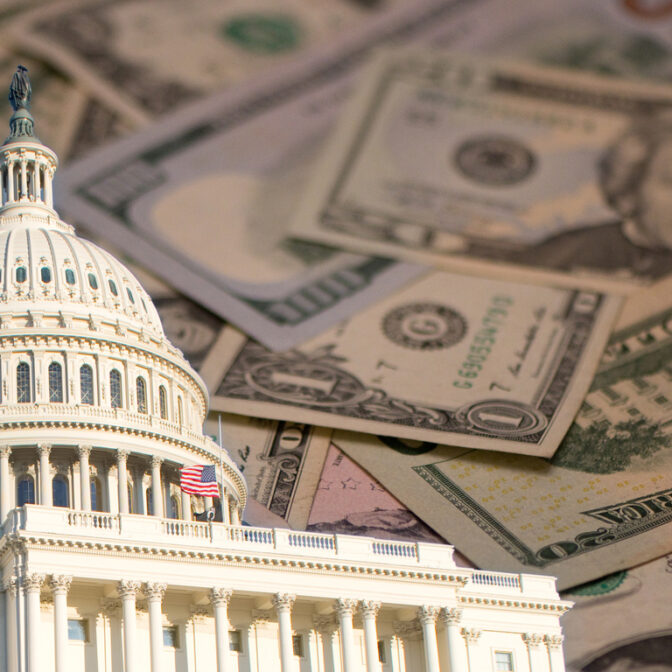By Michael Bright
The federal budget deficit for fiscal year 2023 reached $1.7 trillion. The total accumulated federal debt is $33 trillion, and gigantic federal spending is still on track. President Biden has all but guaranteed this trajectory with a recent request of more than $100 billion to help tighten the U.S. border and support military efforts in Israel, Ukraine, and Taiwan.
The tide of red ink has swelled for decades, spurred by both Democrats and Republicans. Many of the expenditures that caused that rise no doubt were meritorious. But the consequences of government spending more than it collects are about to cause real pain unless deficit spending is curtailed.
The reason: The solution to one economic problem – consumer-price inflation – is spinning another problem – America’s burgeoning debt and deficit – out of control.
The Federal Reserve has been forced for months to boost and now to keep at elevated levels the nation’s interest rates. The Fed has increased its benchmark interest rate to slow the U.S. economy and put a brake on runaway inflation. That strategy is working though it has caused serious dislocations.
One of those dislocations is an acceleration in the government’s debt burden, which has been rising faster than usual because the amount the government has had to pay to finance that debt. The U.S. Treasury is paying 5.29 percent to buyers of its 4-week short-term debt, up from 3.4 percent a year ago.
This is ominous. Money that the U.S. government – meaning taxpayers – spend on interest payments is money that isn’t going to productive goods and services. Worse, these already-high interest payments are starting to spiral upward in ways that will be hard to stop. They feed on each other. The ultimate loser is the U.S. consumer who must pay more to borrow anything – from home mortgages to credit card debt.
The securitization industry that the Structured Finance Association represents bundles loans together to keep their costs down, which helps consumers. But there’s only so much we can do given recently rising interest rates. The one thing that lawmakers and Washington decision makers should consider is to finally cut federal spending. That’s not a partisan plea. It is a serious request to both political parties that needs to be heeded before things get even worse.


